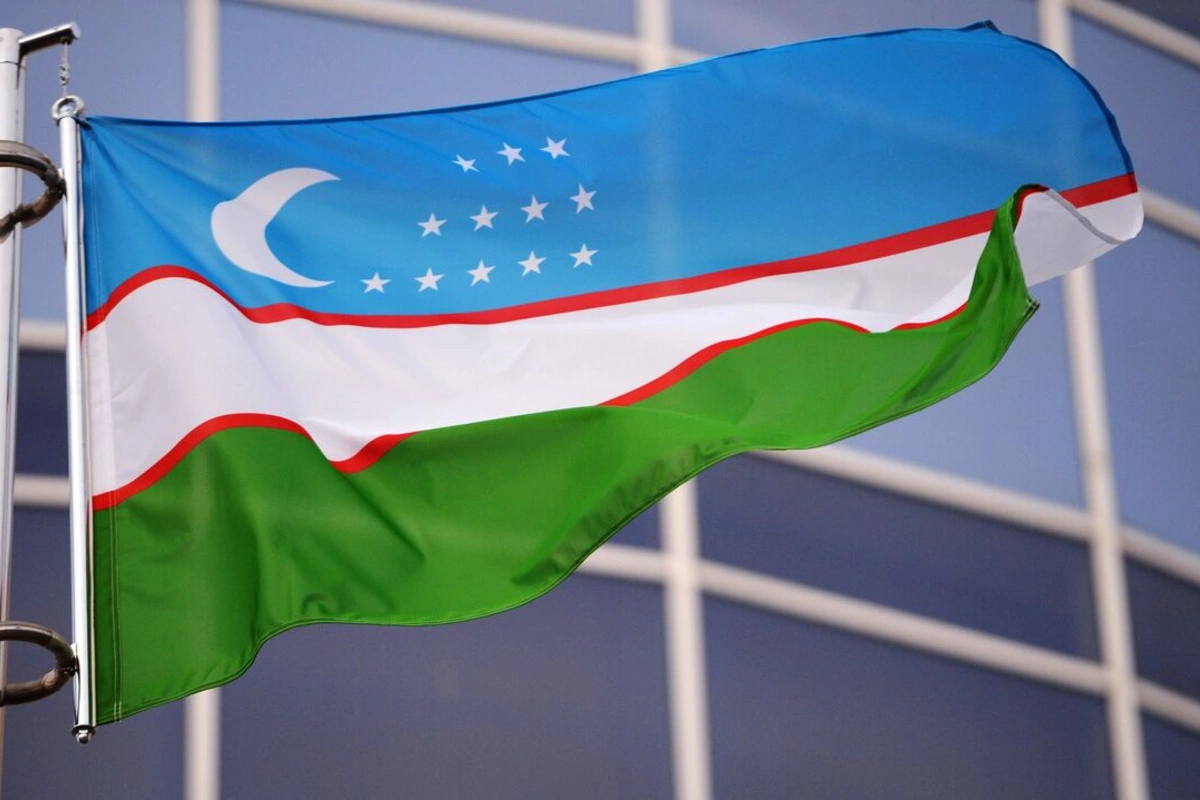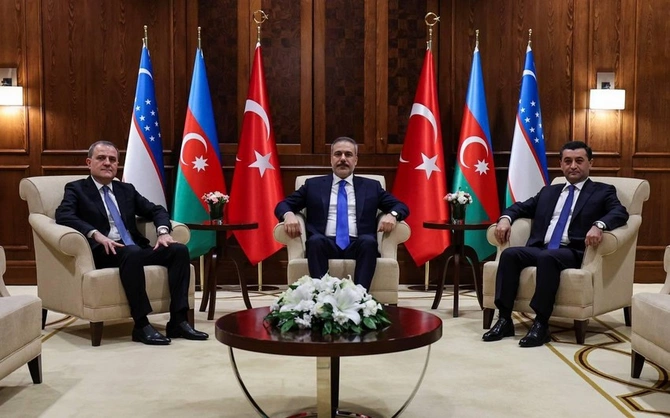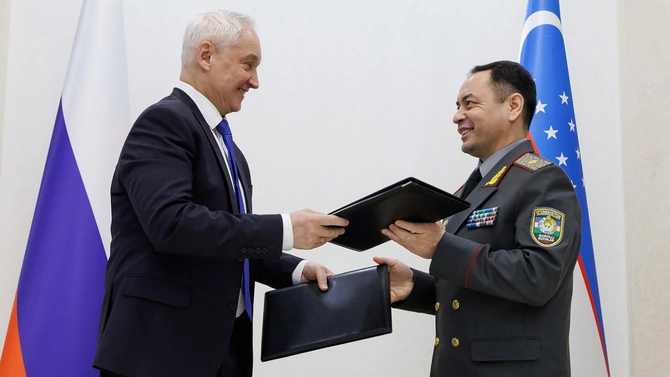
Uzbekistan, a historical epicenter of global civilization, has made an invaluable contribution to world culture, science, and the arts. When discussing this nation, iconic trade and craft centers such as Samarkand, Bukhara, Khwarazm, and Khiva immediately come to mind. Despite lacking direct access to the Caspian Sea, Uzbekistan remains closely integrated with this strategic waterway through logistical networks. Today, the country boasts significant natural resources, an advanced road system, and well-developed infrastructure, making it one of the leading states in the region. Unsurprisingly, it has become a focal point for major global powers. Yet, not all have fully grasped its geopolitical significance-partly due to Central Asia’s long history under the dominion of first the Russian Empire and later the Soviet Union, which impeded its recognition as an independent actor in international law.
Since gaining independence, Uzbekistan has maintained traditional ties with former Soviet republics, particularly Azerbaijan and neighboring states. Positioned along critical transport corridors, these nations actively collaborate in the transportation sector. Notably, in recent years, Azerbaijan has built a robust network of transport and logistics infrastructure, seamlessly integrating into international transit routes. This has bolstered freight traffic through Azerbaijan from Central Asia. A key development in this regard is the agreement on international road transport between Azerbaijan and Uzbekistan, aimed at enhancing regional trade connectivity.
On January 28, 2025, the foreign ministers of Azerbaijan and Uzbekistan, Jeyhun Bayramov and Bakhtiyor Saidov, arrived in Ankara at the invitation of Turkish Foreign Minister Hakan Fidan. During their meeting, the ministers discussed political, economic, trade, energy, transport, and communications cooperation among the three Turkic nations, alongside pressing regional and global security concerns. Given the evolving geopolitical landscape, Uzbekistan’s military-technical cooperation with other states has gained renewed significance, prompting debates over its strategic direction.

One crucial development is the ratification of an agreement between Uzbekistan’s Ministry of Defense and the Pentagon on protecting classified military information-a move seen by some as a logical continuation of Uzbekistan’s efforts to expand ties with global powers. However, not everyone agrees with this trajectory. Despite deepening U.S.-Uzbekistan military cooperation, internal debates persist over whether the country should rejoin the Collective Security Treaty Organization (CSTO), a membership it suspended in 2012. Western-oriented analysts argue that rejoining CSTO would be unnecessary, as Uzbekistan faces no immediate security threats. Others contend that the most populous nation in Central Asia could benefit from CSTO membership, particularly in counterterrorism efforts, the fight against extremism, and drug trafficking-challenges that Western powers have struggled to address effectively.
The debate has intensified amid a 27% increase in U.S.-Uzbekistan trade in 2024, reaching $773.3 million. However, the sustainability of this trend remains uncertain, particularly under a potential second Trump presidency, which is expected to focus more on domestic issues and competition with China.
On January 29, 2025, it was announced that Uzbekistan would introduce a visa-free regime with China starting in April. President Shavkat Mirziyoyev has also participated in the first two Belt and Road Initiative (BRI) forums, underscoring China’s central role in Uzbekistan’s economic landscape. Bilateral trade between the two nations has reached $8.9 billion-significantly surpassing trade with the U.S. China has been Uzbekistan’s largest trading partner for years, accounting for 18% of the country's foreign trade. Joint investment projects span oil and gas, textiles, telecommunications, agriculture, pharmaceuticals, chemicals, and construction materials.
Strategic projects such as the China-Central Asia gas pipeline, the Kungrad Soda Plant, and the Dekhkanabad Potash Fertilizer Plant are advancing, alongside the modernization of the Angren Thermal Power Plant. The "Peng Sheng" industrial park, backed by Chinese investment, is expanding within the Jizzakh Free Economic Zone in the Syrdarya region. Furthermore, Uzbekistan and Kyrgyzstan have reached an agreement with China to construct a railway to Europe that bypasses Russia. Experts estimate the annual freight volume on this route could reach 15 million tons, reducing delivery times by seven days. The railway will extend from Kashgar in China’s Xinjiang region through Torugart, Makmal, and Jalal-Abad in Kyrgyzstan before reaching Andijan in Uzbekistan. From there, goods will flow through Central Asian transport networks to the Caspian Sea, Türkiye, and Europe.
Meanwhile, Uzbekistan and the European Council plan to sign an Enhanced Partnership and Cooperation Agreement in 2025. The European Union has traditionally played a limited role in Central Asia, where Russia maintains a strong influence, though it is increasingly being challenged by China. Against this backdrop, Uzbekistan seeks to preserve strategic flexibility, balancing relations with key global players.
In this context, Tashkent has deepened its ties with Moscow, signing a cooperation plan between the defense ministries of Uzbekistan and Russia for 2025, as well as a strategic military partnership program for 2026-2030. During President Vladimir Putin’s visit to Uzbekistan, he and President Mirziyoyev signed over 20 significant bilateral agreements, including deals on nuclear power plant construction, modernization of Uzbekistan’s gas transport infrastructure, and increased gas and oil supplies.

Russian Defense Minister Andrei Belousov and Uzbek Defense Minister Shukhrat Kholmukhamedov/Russian Defense Ministry
The geopolitical contest for influence in Central Asia remains fierce, with no single power yet securing a decisive foothold. As global players compete for strategic dominance, Uzbekistan’s leadership continues to navigate a complex web of alliances, seeking to maximize its economic and security interests while maintaining sovereignty in an increasingly multipolar world.
Share on social media